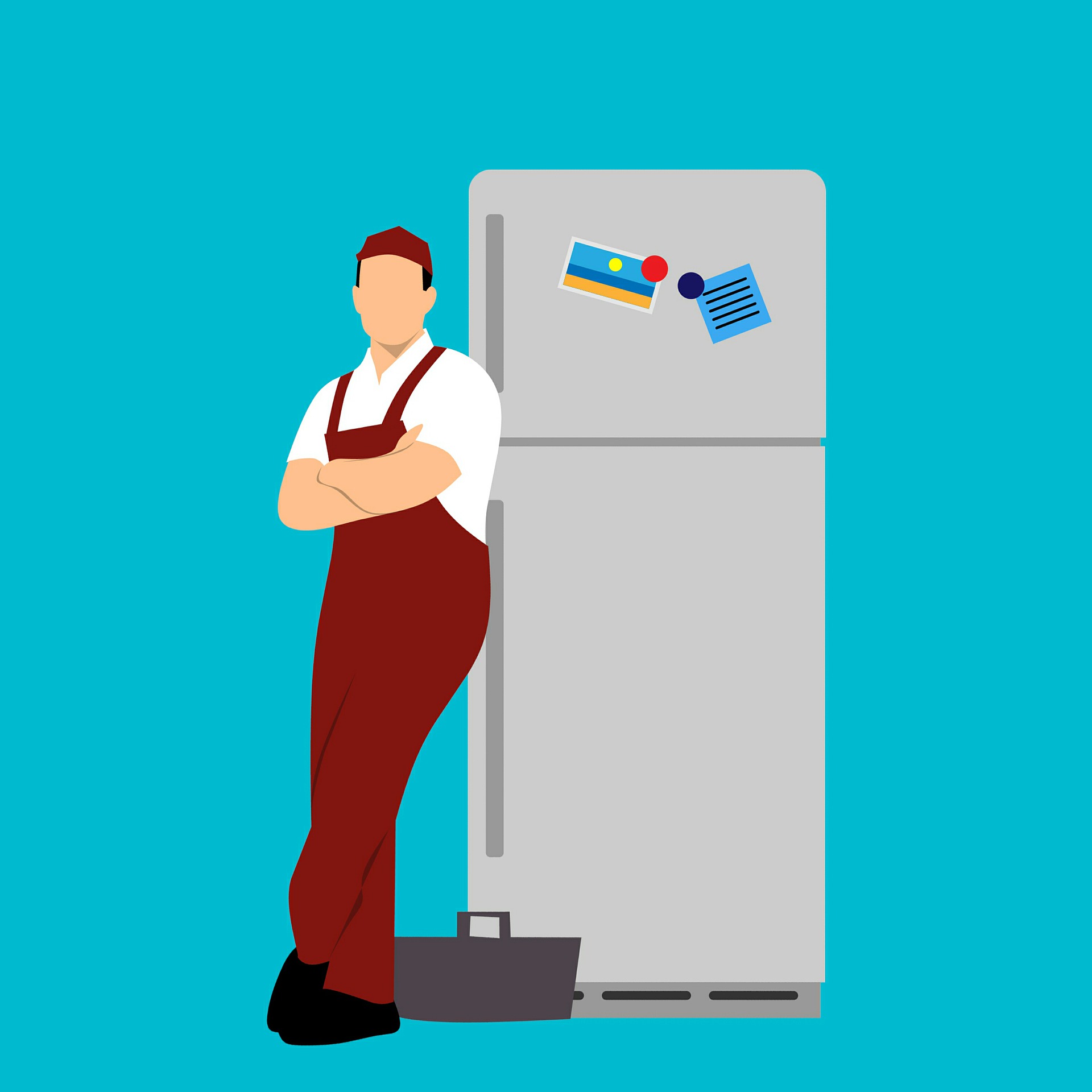The refrigerator is one of the silent workhorses in our homes – always working 24/7 come rain or shine. Your fridge can last for years when given proper care and maintenance. But as the cliche goes: all things must come to an end. Here are the signs to look out for to know when you need to replace your refrigerator:
1. Extreme Condensation

Before you panic at the first sign of moisture on your fridge, just know that some condensation on or inside your refrigerator is normal.
Condensation happens when hot air touches a cold surface. Opening the fridge door frequently will bring hot air inside. It could also be the hot left-over sinigang from dinner.
Condensation can also happen when the air is too cold and humid. It can cause small water droplets to form on the body of the fridge. This too is normal and poses no problem and will go away on its own.
However, when the condensation at the exterior is so excessive that it appears that your ref is “sweating”, then it could mean that your unit has trouble maintaining its temperature.
First off, you should check your temperature setting if it is correct.
If nothing is wrong with your temp setting, then check the door’s rubber gasket as this is in-charge of locking in the cold air and locking out warm air. Inspect it for molds, mildew, and moisture, or for cracks and other damages. You can repair the gasket or attach a new gasket (check with your warranty first).
If that doesn’t change things, or if you notice that the interior also has a severe condensation problem, then it is best to call in a technician to diagnose the problem.
2. When it’s a compressor problem
The compressor is responsible for pumping the refrigerant throughout the refrigerator coils. It is a crucial part of the whole system – often being called the “heart” of the refrigerator.
Compressors don’t quit early or easily – but when they do, it means a lot of headaches will be coming your way.
When the technician says “Boss, ‘yung compressor ang may tama”, it may pretty much be the death knell for that unit.
Replacing the compressor is expensive, as the replacement parts and the professional fee for the technician can cost more than half of what you paid for the ref when you bought it.
The only time you should consider repairing or replacing the compressor is if the refrigerator itself is expensive. Otherwise, just replace your refrigerator to get rid of the hassle and future repair fees.
P.S.: Keep in mind that manufacturers often have a 5-year warranty on the compressor of non-inverter models and 10+ years warranty for inverter models. Check with them first!
FURTHER READING: Refrigerator 101 – How Does A Refrigerator Work?
3. When it’s too loud
It’s normal for refrigerators to make a buzzing sound when the compressor is on. It’s usually around 32 to 47 dB – which is not loud, but it is noticeable.
You may also hear some cracking and groaning from time to time. This is brought about by the contraction and expansion of materials due to the changes in temperature. A gargling sound can also be heard, but that’s just the refrigerant doing its thing.
The abnormal sounds to listen for are these:
- Knocking – it may be the condenser or the compressor failing.
- Squeaking – it may be a malfunctioning evaporator fan on non-frost models.
- Rattling – it could be a loose drain pan at the bottom of the fridge.
You should also listen if your compressor is constantly working hard without turning off. This could mean that your fridge is having a hard time maintaining the temperature inside and that something is definitely in order.
4. When it’s too quiet
Inversely, if your refrigerator is suspiciously quiet, it could be that the compressor is not working. This is problematic as this can spoil your food without you knowing it.
Try unplugging and plugging it in. If it still doesn’t work, or if it is accompanied by other symptoms like excessive condensation and if the refrigerator is not cooling at all, then it may likely be a compressor problem.
Call in a technician first to diagnose the problem properly.
5. When the back (or the sides) are too hot
A little bit of heat at the back of the refrigerator is normal. After all, that is where the compressor and the condenser is located.
On models with a ‘clean-back’ design, the condenser may be hidden inside the side walls of the fridge – this will let off some heat too. This is normal, as the heat you’ll feel is the heat being dissipated during the refrigeration cycle.
However, when it gets too hot to the touch, it may be a sign that something is wrong with the ventilation or the condenser.
Before calling the technician, check for this issues first:
- Ventilation space – there should be 50mm of free space at the sides and 100mm at the top to allow for proper ventilation.
- Dirty Condenser – when the condenser gets too dirty, it may not dissipate heat properly. Give it a good cleaning with a brush (unplug it first!) and monitor the change in performance.
6. When the frost builds up too fast

Some frost is to be expected in the freezer, but when the frost gets too thick too fast, then there may be something wrong with the freezer.
For models that don’t have an automatic defrost function, check the door gasket for wear and tear. The hot air being let in to the fridge will cause condensation that will eventually freeze over. Check the drain hole as well if there is any blockage.
For no frost refrigerators, you should check the gasket and the drain hole as well. Sometimes though, it can be the effect of a malfunctioning freezer fan or the heating rod and timer may be out of whack.
You’ll know if the freezer evaporator fan is malfunctioning if the fridge compartment is warm and sweating while the freezer looks like it’s a winter wonderland.
Check if there is a blockage in the fan. Sometimes the fan may be the one that’s iced over as well.
If the heating rod and defrost timer is the issue, there may be no choice but to consult with your technician.
7. When it’s 10+ years old
A refrigerator’s life span can easily reach a decade or even more if it is properly maintained and taken care of. If the fridge breaks down at that age, then it may be unwise to repair it.
Lean towards repairing a young unit (especially those still within warranty). If you repair a really old unit, it may eventually breakdown soon enough.
Also take note if its repair history; if it underwent a major repair once in its life, or is being repaired constantly in the last few years, then it will be more economical to just replace your broken refrigerator.
Conclusion
From its age, to the symptoms, and to the severity of the damage – all of these will be at the back of your mind when deciding whether to repair your fridge or replace your refrigerator all together.
A rule of thumb to follow is that if the repairs cost half of what you bought your ref for, then it will be more cost-effective to just buy a new one.
If problems keep popping up after the repair, then it may be wiser to just replace your refrigerator instead of sinking a few thousand pesos more to keep your current one in life support.
FURTHER READING: Refrigerator Buying Guide
Sources:
https://lifestyle.euronics.co.uk/buyers-guide/fridge-freezers/noise-levels/
https://www.realtor.com/advice/home-improvement/refrigerator-making-noise/
https://www.ajmadison.com/learn/what-to-do-with-a-broken-refrigerator-repair-or-replace/

Miguel Mores worked for 5 years as a member of the product management team for a home appliance company in the Philippines. He started 101appliance to answer the most common customer questions that he has encountered during his time in the industry. He now works in the digital marketing field and manages a small online bookstore on the side.

